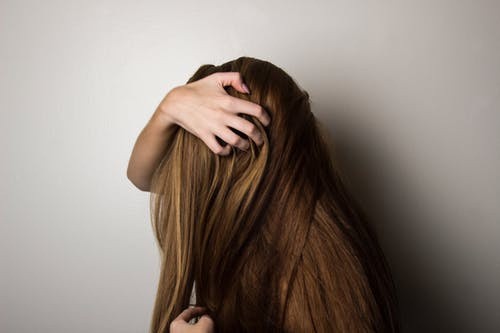
There are people who can detect dandruff symptoms as they happen. Dandruff is usually linked with an irritable itchy scalp as white, unsightly chips of dead skin fall on your hair and shoulders. Its condition usually worsens during dry spells, where excess heat can lead to oily skin causing dandruff conditions to fester.
Can lack of sleep cause dandruff?
Dandruff is a kind of scalp condition in which dead skin sheds from the results of a dry scalp. There are a lot of people around the world who are afflicted with it. While dandruff is not a serious condition, it can still make people unhappy as whitish flakes pepper across their shoulders throughout the day causing unwanted embarrassment.
Dandruff can affect people from all walks of life, but they usually happen to men who have a weaker scalp barrier than women, which makes them more prone to dandruff. Oil builds up at the base of our hair roots, the oil then molds into tiny flakes together to make a massive and more pronounced flakes before they start falling out in numbers.
Causes of dandruff
There are a lot of causes of dandruff, and they include dry skin, irritable or oily skin, not using shampoo frequently and sensitive scalp. Flakes from dry skin much smaller and overall less oily as compared to other types of dandruff. Inflammation and redness are also less likely. You will typically have dry skin on other parts of your body, such as your legs and hands as well.
A common cause of dandruff and irritable skin is distinguished by red, oily skin that is smoldered by white or yellow flakes. Seborrheic dermatitis affects parts of the scalp that have oil glands in abundance. They also affect the corners of your eyes, eyebrows, pelvis, behind your ears and in your underarms.
Skin cells and excess oil can form into dandruff if you do not wash your hair regularly. Malassezia is a yeast-like fungus that inhabits the scalps of adults. It causes irritation to the scalp by causing skin cells to grow fast. These excess skin cells wither away and fall, giving them the appearance of white flakes that stick to your hair and clothes. There is no clear reason as to why malassezia affects some scalps and not others.
Some sensitivities can happen because of the different ingredients found in numerous hair care products which cause scalps to be itchy, red and scaly.
However, there is one reason which could be causing your dandruff problems and that is sleep deprivation. So how could sleep deprivation affect your scalp? The reason is that sleep deprivation can lead to stress, which in turn restricts blood circulation in the head. The lack of blood circulation in the scalp can make it vulnerable which inadvertently hampers the strength of your hair.
Because of this, your scalp becomes especially defenseless against fungal growth leading to an outbreak of dandruff. Also, as insufficient blood circulation restricts the supply of nutrients to the scalp, your dandruff condition can become much worse as a result.
Dandruff does not just happen from the lack of disorder or hygiene, it also occurs as a result of stress and lack of sleep. If are not getting enough sleep and if you are getting more dandruff than usual, it is best to change your sleeping routine in order to improve your health.
See a doctor if your condition worsens
You won't need a prescription from a doctor for most cases of dandruff. But if dandruff shampoos are not working, or if your scalp becomes noticeably worse, you will need to visit a dermatologist. You may have seborrheic dermatitis or another form of ailment that is similar to dandruff. Most of the time your doctor can easily diagnose your problem just by looking at your hair roots and your scalp.
© 2026 ScienceTimes.com All rights reserved. Do not reproduce without permission. The window to the world of Science Times.












